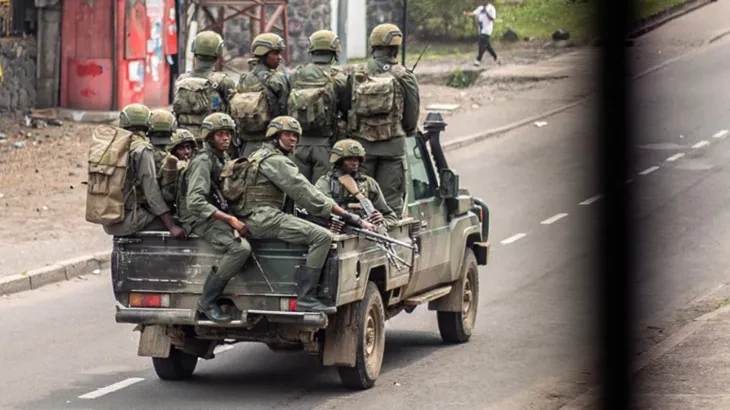
THE Sadc community is waiting anxiously to see if all the heads of State and government will attend today’s extraordinary summit to be held in Harare to discuss the conflict in eastern DRC, NewsDay has established.
This comes as most Sadc leaders failed to turn up for the last extraordinary summit held on November 20, 2024 in Harare to review the security situation in the region, with focus on the situation in the eastern part of the Democratic Republic of Congo.
At the last meeting, 12 of the 16 Sadc heads of State sent representatives to the summit.
While there are high expectations that the Sadc leaders will take the conflict seriously, there are also fears that it has become chronic, leading to lassitude across the region.
The DRC conflict has already affected some Sadc member States, making the summit a critical platform for regional leaders to address the crisis.
Today’s extraordinary summit on DRC is the second since President Emmerson Mnangagwa assumed chairmanship in August last year.
The majority of the Sadc heads of State, 12 out of 16, sent representatives to the summit in Harare held on November 18, 2024.
However, former Foreign Affairs minister Walter Mzembi said the summit could draw leaders from across the bloc, keen to find solutions to the escalating violence in the DRC and its far-reaching consequences.
- Byo armed robber in court
- Woman jailed 12 years for indecent assault
- Magistrate jailed 3 years for abuse of office
- In Full: Fifteenth post-cabinet press briefing, June 07, 2022
Keep Reading
Mzembi told NewsDay yesterday that the crisis in DRC was crucial enough to prompt attendance of Sadc head of States and government.
“There will be an absolute attendance of this edition of Sadc extraordinary summit whose roll call will be both physical and virtual,” he said.
Mzembi said the casual attendance at the last extraordinary summit where some countries opted to attend other global programmes and events would upgrade itself to an emergency session and attendance.
“There has since been an escalation of the conflict in the DRC, in which two Troika members, Malawi and Tanzania, have been recent casualties and South Africa, a major troop contributing country to both SAMIDRC [Sadc Mission in the Democratic Republic of Congo] and Monusco [United Nations Organisation Stabilisation Mission in the Democratic Republic of the Congo] suffered most,” he said.
“So this will be not just be a meeting of Sadc heads of State, but commanders-in-chief of defence forces in the regional conflict playing out in the DRC.”
However, political analyst Eldred Masunungure said the leaders had no energy to tackle the problem.
“It is difficult to say, but the brutal reality is that many Sadc countries and their leaders were fatigued by the chronic conflict and instability in the DRC,” he said.
“There is little appetite for tackling this perennial regional headache. This explains why there are only three countries in the SAMIDRC.
“One can, therefore, expect less than impressive attendance tomorrow.”
Another analyst Reuben Mbofana said had been a pattern over the years where the highest attendances were recorded during annual heads of State and government summits instead of emergency meetings.
“If the leaders truly believed that meeting discussing DRC or Mozambique or any other conflict will actually result in tangible results, they would attend. But these heads of State are not stupid,” Mbofana said.
“They know that Sadc is a toothless bulldog. They know that Sadc is useless. So, they know that they can have these extraordinary meetings, spend millions of dollars travelling.
“That’s a lot of money for all these delegations. For what at the end of the day? Sadc already has forces, the armed forces, a military presence in the DRC. They are being walloped left, right and centre by the M23 rebels.”
In a statement on Wednesday, Foreign Affairs and International Trade minister Amon Murwira said Sadc leaders were expected to come up with resolutions restoring stability in Eastern DRC.
“Any instability in the Sadc region is an affront on the economic development efforts of the region,” Murwira said.
“Therefore, peace is very important.
“Therefore, their excellencies will be able to be given the extent of the problem on Friday and they will be able to make decisions on this.”










